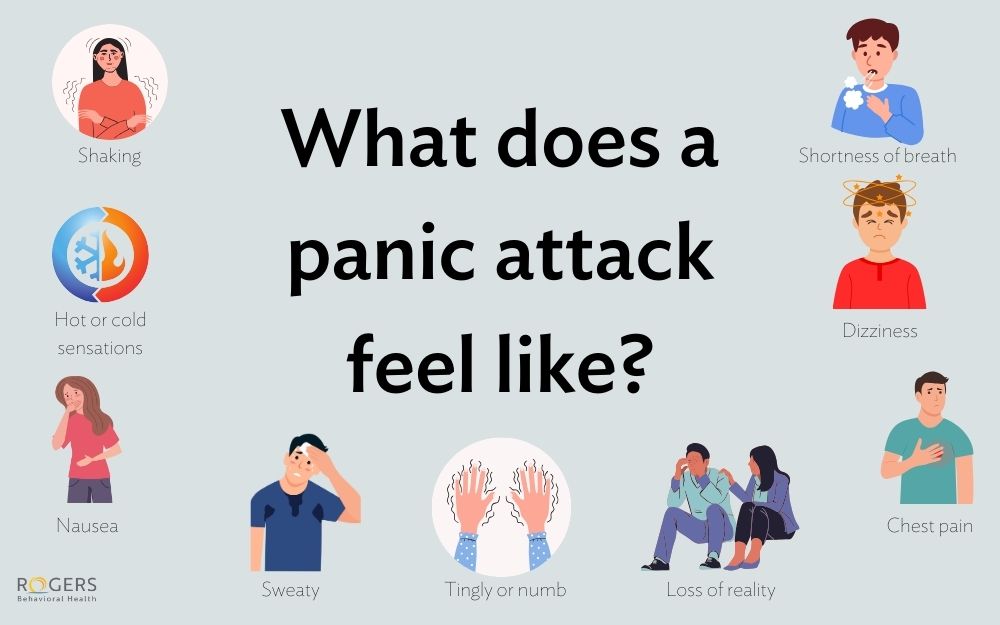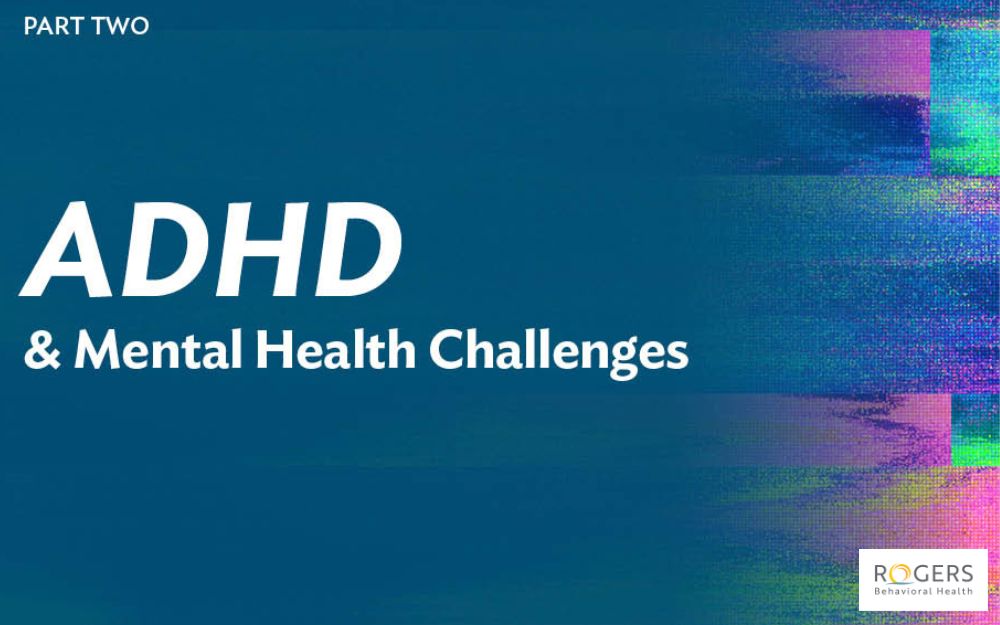School refusal intervention strategies – Understanding school refusal podcast
Podcasts are not supported in Internet Explorer. Please use an alternative browser such as Google Chrome.
Transcript
Deborah Howell (Host): Hello, I’m Deborah Howell, the host of School Refusal, a special podcast series from Rogers Behavioral Health. This is episode three of our four part series where we’ll look at how to tackle school refusal. I’d like to welcome Dr. David Jacobi, a licensed clinical psychologist who specializes in using cognitive behavioral therapy for the treatment of OCD and anxiety disorders. Dr. Jacobi serves as the lead – Dr. Jacobi serves as the lead psychologist of Child and Adolescent CBT services for Roger’s Behavioral Health. Welcome Dr. Jacobi.
Dr. David Jacobi (Guest): Hi Deborah.
Host: It’s a pleasure having you on the show today.
Dr. Jacobi: Yeah, thanks for having me.
Host: Now my first question to you is, what are some of the mental health issues that contribute to school refusal?
Dr. Jacobi: There certainly are a variety of mental health issues that we’re concerned with and certainly relate to a child refusing or really unable to go to school. Probably the most common of these are the anxiety disorders, which I’ll talk about in greater detail, depressive disorders, certainly just feeling depressed or other kind of mood related concerns are usually fairly typical, and probably less prevalent but still significant are things like autism spectrum disorder, attention deficit disorders, and certainly in some cases either diagnosed or even undiagnosed learning disabilities.
Host: So what are some of the signs and symptoms that parents and teachers need to look out for that would indicate when a child is struggling with anxiety, mood, or ASD?
Dr. Jacobi: Sure and certainly that’s a big question and certainly one of the things that we try to convey to parents is when is it a problem? When does it go from a normal anxiety or normal changes in mood to the point where it becomes a disorder, and I think it’s normal for kids to have periods of nervousness before an exam or if they’re doing certain extracurricular activities. Often times, the anxiety that results from that is what we would say is transient so it may only last until that project is over, the game is over, or whatever it might be. Where we find there are problems with both depression and anxiety is when there tends to be more stress associated with the issue, the problem tends to be more chronic, so in other words I am depressed across multiple situations, I am anxious across multiple situations, there’s interference in functioning so I’m not doing as well in school, I’m not able to perform as well. I may have difficulty interacting with my family members or beginning to struggle with social interaction. So the child whether it’s depression or anxiety will then kind of learn to avoid situations that provoke these kinds of negative emotions and often times that’s when the school refusal becomes an issue, is they just can’t seem to deal with it anymore in a way that allows them to get to school to be successful at school. So in terms of things – for example if we kind of walk through some of the anxiety disorders; the ones that we see more commonly that tend to be associated with school refusal are things like generalized anxiety disorder. It’s otherwise known as the worry – excessive worry about a variety of things that most kids are concerned about, but it’s just too much of that and it’s really difficult for the kid to kind of turn that worry off. So these kids can tend to be kind of perfectionistic, they really want to do well. They may spend a great deal of time on homework assignments and preparing for exams because failure to them is essentially not an option and it can become problematic if for example they miss school for some reason. They get behind. They can’t really catch up in a way that they want to. They can’t perform, do their homework assignments to the standard that they’ve set for themselves. We also see kids struggle with social anxiety disorder. So difficulty interacting with other kids or even teachers for fear that I might do or say something that would be humiliating or embarrassing. So again, it’s just easier to stay away from those situations and provoke that. However, kids have real panic attacks in school. Anytime I’m in a situation where I’m around other people I have this fear that my body is going to go into that fight or flight response and I’m going to feel my heart racing and hard for me to catch my breath and I worry about embarrassing myself or passing out and not getting the help that I deserve or need in that moment. Other things that come up as well, things like obsessive compulsive disorder. Some of these kids really struggle with being around other kids for fear of things like contamination, not being able to use the restrooms at school for fear again of germs or something of that nature. So there’s multiple different anxiety disorders certainly that contribute to that school refusal behavior. There are also mood disorders. So major depressive disorder, for example, where the child would experience that sort of subjective sense of depressed mood, not enjoying things that they would normally enjoy. There can be changes in their sleep, not being able to fall asleep or stay asleep, for example; feelings of worthlessness, feeling tired, low energy, poor concentration, and certainly at times suicidal thoughts; all of those things, obviously lead to that child just not feeling like themselves, not feeling like they can handle school and everything that goes along with school, so they understandably decide to stay home, maybe isolate, withdraw from multiple areas of their lives.
Host: My next question to you then is why is it so critical to address the mental health issue in relation to school refusal behaviors?
Dr. Jacobi: You know certainly there are kids for whom they may miss a day or two for various reasons, but they’re generally able to resume attending school without too much difficulty. When we see that the child is refusing school for multiple days per week every week or in the case of many of the kids that we see, they just completely stop going to school, there’s typically something connected to that, right? So either something has happened at school, maybe it’s bullying for example that’s really lead to them not wanting to go, but more often than not what we’re seeing is either an anxiety related disorder or a mood disorder, and the school refusal is just sort of a manifestation of that, but it’s very likely that they’re not functioning very well in other areas of their lives. So at home, with friendships, just their general quality of life is not going very well for them. So we really want to treat that underlying anxiety or mood disorder or whatever it is, not only to increase the likelihood they’re going to be able to get back to school and benefit, but just to overall improve their general quality of life and functioning, right? Because it is distressing. It is impairing and we want to make sure we’re addressing that sort of underlying reason for that school refusal behavior.
Host: And what types of treatments are now helpful for teens dealing with these types of mental health struggles?
Dr. Jacobi: There’s a variety of really good treatments that are what we would call evidenced based or empirically supported, meaning we’ve got a lot of good data, a lot of good research that supports the efficacy of these particular treatments, meaning they work for the majority of kids who are dealing with these anxiety and mood disorders. The sort of big umbrella heading, Deborah, is what we call cognitive behavior therapy, which really just means that cognitive is the thoughts. My ways of thinking, for example, in terms of anxiety and depression, those are generally unhelpful kinds of thoughts or what we would call maladaptive thoughts. So for example in the world of anxiety disorders, that could be thinking the worst. If I don’t do well on an exam, my life is ruined. If I make a mistake when I’m giving a presentation in class, the other kids are really going to just hate me and laugh at me and I’ll never be able to come back to school ever again. The behavioral part, generally for both anxiety and depression involves some form of avoid. When I avoid situations that make me anxious, it does make me feel better in the short term, but it leads to long term difficulties, right? Because my world essentially begins to shrink over time. I stop doing things, going places, anything that triggers my anxiety, or in the case of mood, anything that just sort of makes me feel better in the moment is what I’m going to try to engage in. Those are generally maladaptive ways of obviously dealing with these situations and these disorders. So in terms of anxiety disorders there’s a couple things we can use making use of that cognitive behavioral treatment. We can do what’s called thought challenging. Let’s go through and systematically look at those ways of thinking and see if we can find a more balanced way of thinking about things and when people are able to do that, they generally don’t feel as anxious, but we can also do something that’s really valuable and that’s called exposure therapy. So gradually confronting the situations, the people or the objects that provoke my anxiety, and what we find is that when people do that gradually and systematically over time, the things that kind of bring on their anxiety tend to improve, right? So the classic example Deborah would be a child who’s afraid of dogs, they do their best to avoid situations where dogs are, they see a dog they run away, and what we do with exposure is to slowly and gradually to expose them, for example, to different kinds of dogs, different kinds of situations, getting closer and closer to dogs, and eventually they learn that the majority of dogs are safe and they can handle it. The same sort of thing applies with our anxiety disorders, and in a different way, we can also apply that process to mood disorders. So for example, in the world of mood disorders, a lot of people engage in what are called avoidance patterns. So they may sleep excessively, they may withdraw from social situations. For some of our teenagers they engage in substance use, right? It feels better when I’m high. It feels better when I’ve used alcohol for example and what we want to transition them to gradually is to what’s called active coping. So start to slowly but surely decrease that avoidance by engaging in things that are fun, it’s important, but also routine activities, cleaning your room, doing the wash, doing your chores around your house, and then also valued activities, which could be things like working on relationships, doing some volunteer work, and what we find over time is when people start to reduce that avoidance and start to engage in this act of coping, they start to notice that their mood begins to improve slowly but surely and if there are situations that they are struggling with, we also help them with problem solving. Let’s find ways to resolve these situations that allows you to move forward and deal with and over time if they continue to engage in this active coping, they generally start to see their mood improve. So with both anxiety and mood disorders Deborah, this idea of going from that avoidant way of responding to them to a more active way of responding to these situations, tends to lead to better mental health outcome.
Host: And I’m going to actively thank you so much for joining us Dr. Jacobi, it’s been such a pleasure to have you on the show.
Dr. Jacobi: Thank you.
Host: I look forward to part four which will be happening soon in our series. Rogers Behavioral Health is working each day to ensure those with mental health challenges that they have access to the highest quality of care and most effective treatment available today. To learn more about the many ways Rogers can help children, teens, families, and schools, please visit rogersbh.org today, that’s rogersbh.org. I’m Deborah Howell, thank you so much for tuning in and have a great day.



